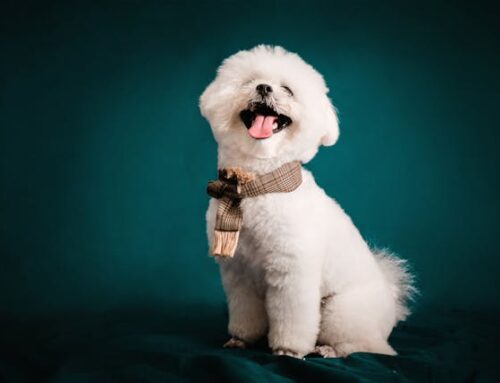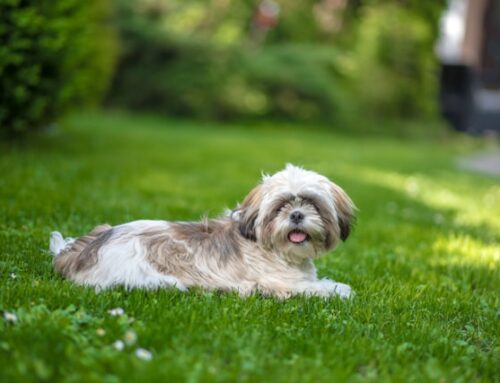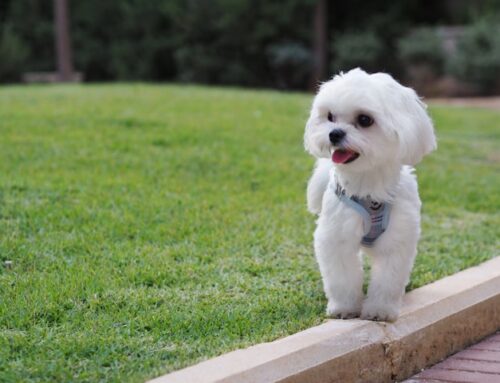Introduction: How to Create A Routine for Your Puppy
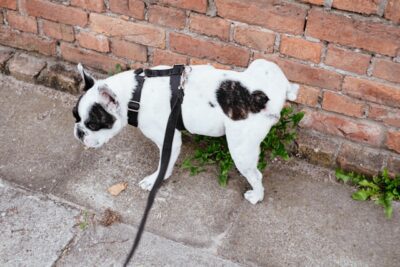
Introducing a new puppy into your home is an exciting and rewarding experience. As a new puppy parent, one of the most important things you can do to set your furry friend up for success is to establish a routine. A routine not only provides structure and stability for your puppy but also helps them learn what to expect and what is expected of them.
In this article, we’ll discuss the importance of creating a routine for your puppy and provide practical tips on how to do so effectively. Whether you’re a first-time puppy owner or looking to refine your current routine, this guide will help you create a schedule that works for both you and your new furry family member.
Importance of a routine for puppies
Establishing a routine is crucial for puppies as it provides them with a sense of security and predictability. A consistent schedule helps puppies learn what is expected of them and reduces anxiety.
Additionally, a routine can aid in house training and behavior management, setting the foundation for a well-behaved adult dog. Overall, a routine promotes a happy and balanced life for both puppies and their owners.
Benefits of establishing a routine early on
Establishing a routine early on for your puppy has numerous benefits. It helps them learn proper behavior and boundaries, making training easier and more effective.
A routine also helps prevent behavioral issues such as anxiety and boredom, as puppies thrive on predictability and structure. Additionally, a consistent schedule promotes better health by ensuring they receive regular meals, exercise, and potty breaks.
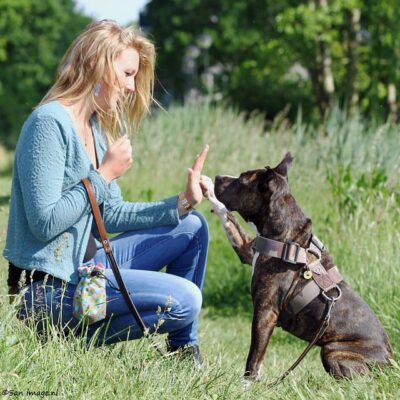
Preparing for a Routine
Setting realistic expectations
Preparing for a routine for your puppy involves setting realistic expectations based on their age, breed, and individual needs. Puppies require frequent potty breaks and feeding times, so be prepared to dedicate time to these activities throughout the day.
It’s important to understand that accidents and setbacks are normal during the training process, so patience and consistency are key. By setting realistic expectations and being prepared for the commitment, you can create a successful routine for your puppy.
Understanding your puppy’s needs
Preparing for a routine for your puppy starts with understanding their basic needs. Puppies require regular meals, plenty of exercise, socialization, and mental stimulation.
It’s important to consider your puppy’s age, breed, and energy level when planning their routine. By understanding and meeting these needs, you can create a schedule that promotes your puppy’s health, happiness, and overall well-being.
Creating a schedule template
Creating a schedule template for your puppy can help you establish a consistent routine. Start by mapping out regular times for feeding, potty breaks, playtime, training, and rest.
Consider your own daily schedule and lifestyle to ensure the routine is manageable for you as well. Be flexible and willing to adjust the schedule as needed based on your puppy’s behavior and development.
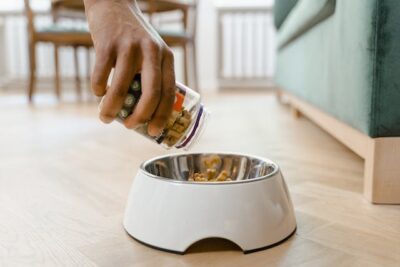
Establishing a Feeding Schedule
Determining the right feeding time
Establishing a feeding schedule for your puppy starts with determining the right feeding time. Puppies typically need to eat more frequently than adult dogs, so they may require three to four meals a day, depending on their age and breed.
It’s important to establish a consistent feeding schedule to help regulate their digestion and prevent overeating. Consult with your veterinarian to determine the best feeding times based on your puppy’s needs and age.
Choosing a suitable diet for your puppy
Choosing a suitable diet for your puppy is essential for their growth and development. Puppies have different nutritional needs than adult dogs, so look for a high-quality puppy food that is appropriate for your puppy’s age, size, and breed.
Avoid feeding them human food or foods that are not specifically formulated for puppies, as these can be harmful to their health. Consult with your veterinarian to determine the best diet for your puppy’s specific needs.
Monitoring food intake and adjusting as necessary
It’s important to monitor your puppy’s food intake and adjust their feeding schedule as necessary. Puppies have different appetites and growth rates, so their food requirements may change as they grow. Keep an eye on their body condition and weight, and consult with your veterinarian if you’re unsure about how much to feed them.
By monitoring their food intake and adjusting their feeding schedule accordingly, you can ensure they are getting the right amount of nutrition to support their health and development.
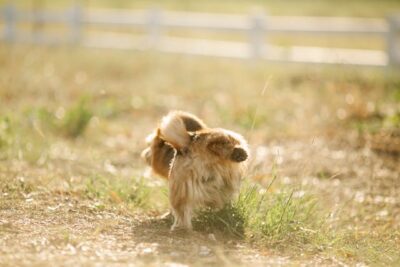
Setting Up a Bathroom Routine
Establishing regular potty breaks
Establishing regular potty breaks is crucial for teaching your puppy where and when to go to the bathroom. Puppies have small bladders and may need to go out as often as every 1-2 hours, especially after eating, drinking, playing, or waking up.
Take your puppy outside to the designated potty area consistently throughout the day, and praise them when they eliminate outside to reinforce good behavior. Gradually increase the time between potty breaks as your puppy grows older and can hold their bladder for longer periods.
Recognizing signs that your puppy needs to go
Recognizing signs that your puppy needs to go to the bathroom is key to preventing accidents in the house. Common signs include sniffing the ground, circling, whining, or suddenly stopping play.
If you notice any of these signs, immediately take your puppy outside to their designated potty area. Consistency is key to reinforcing this behavior, so praise them when they eliminate outside to help them understand where they should go.
Reinforcing good bathroom habits
Reinforcing good bathroom habits is essential for establishing a successful bathroom routine for your puppy. Praise your puppy enthusiastically and give them treats immediately after they eliminate in the designated potty area. Use a consistent command, such as ‘go potty,’ to help them associate the action with the command.
Avoid punishing your puppy for accidents indoors, as this can confuse them and hinder their progress. With patience and positive reinforcement, your puppy will learn to associate going to the bathroom outside with rewards, making potty training a positive experience.
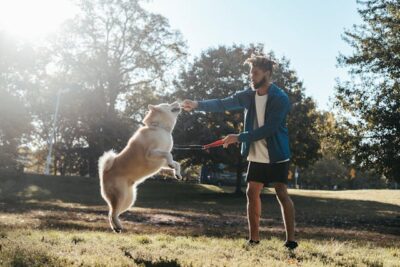
Incorporating Play and Exercise
Scheduling playtime and exercise sessions
Scheduling regular playtime and exercise sessions is crucial for your puppy’s physical and mental well-being. Puppies have lots of energy to burn, so aim for several short play sessions throughout the day.
Interactive toys, such as chew toys, balls, and puzzle toys, can help keep them entertained and mentally stimulated. Additionally, outdoor activities like short walks and supervised play in a safe area can provide much-needed exercise and help prevent boredom.
Providing mental and physical stimulation
Providing both mental and physical stimulation is essential for keeping your puppy happy and healthy. Mental stimulation can include training sessions, puzzle toys, and interactive games that challenge their mind. Physical exercise, such as walks, runs, and playtime, helps burn off excess energy and keeps them physically fit.
By combining both types of stimulation, you can help prevent boredom and destructive behavior while strengthening the bond between you and your puppy.
Ensuring a balance of activity and rest
Ensuring a balance of activity and rest is important for your puppy’s overall health and well-being. While it’s essential to provide regular exercise and playtime to keep them active and engaged, it’s equally important to allow for plenty of rest periods.
Puppies need lots of sleep to support their growth and development, so make sure they have a quiet, comfortable place to rest between play sessions. By maintaining a balance of activity and rest, you can help prevent overexertion and keep your puppy happy and healthy.
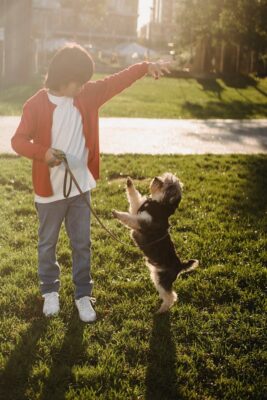
Including Training and Socialization
Incorporating training sessions into the routine
Incorporating training sessions into your puppy’s routine is essential for their development and well-being. Training helps teach them basic obedience commands, such as sit, stay, and come, as well as important behaviors like potty training and leash manners.
Training sessions should be short, fun, and positive, using rewards like treats and praise to reinforce good behavior. By making training a regular part of your puppy’s routine, you can help them become a well-behaved and obedient adult dog.
Exposing your puppy to new experiences and environments
Exposing your puppy to new experiences and environments is crucial for their socialization and overall development. Introduce them to different people, animals, sounds, and environments gradually, starting with calm and controlled settings.
Positive experiences during socialization can help prevent fearfulness and aggression later in life. By exposing your puppy to a variety of experiences early on, you can help them become a well-adjusted and confident adult dog.
Fostering positive interactions with people and other animals
Fostering positive interactions with people and other animals is essential for your puppy’s socialization. Encourage gentle and positive interactions with people of all ages, including children, to help them become comfortable in various social settings.
Similarly, introduce your puppy to other friendly and vaccinated dogs to help them learn appropriate social behavior. By creating positive experiences with a variety of individuals and animals, you can help your puppy develop into a well-socialized and friendly adult dog.
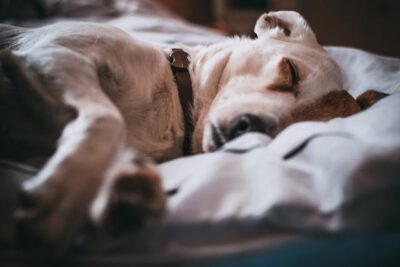
Implementing a Sleep Schedule
Creating a comfortable sleeping area for your puppy
Creating a comfortable sleeping area for your puppy is essential for ensuring they get the rest they need. Choose a quiet and cozy spot in your home where your puppy can rest undisturbed.
Provide a comfortable bed or crate with soft bedding, and consider using a blanket or shirt with your scent to help them feel secure. By creating a comfortable sleeping area, you can help your puppy settle down for a restful night’s sleep.
Establishing a bedtime routine
Establishing a bedtime routine can help your puppy relax and prepare for sleep. About 30 minutes before bedtime, engage in calming activities such as a short walk or quiet playtime. Avoid overly stimulating activities or feeding them a large meal right before bed.
Establishing a consistent bedtime routine can help signal to your puppy that it’s time to wind down and sleep, promoting a restful night’s sleep for both you and your furry friend.
Ensuring your puppy gets enough rest
Ensuring your puppy gets enough rest is crucial for their health and well-being. Puppies need plenty of sleep to support their growth and development, so it’s important to provide them with a quiet and comfortable sleeping area.
Avoid disturbing your puppy’s sleep unnecessarily and allow them to nap during the day as needed. By prioritizing your puppy’s rest, you can help them stay happy, healthy, and full of energy.
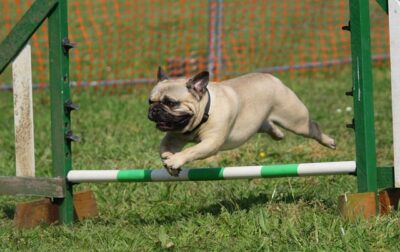
Adjusting the Routine as Your Puppy Grows
Recognizing signs that the routine needs to change
As your puppy grows, their needs and behavior will change, signaling that it may be time to adjust their routine. Signs that the routine needs to change include changes in appetite, energy levels, or behavior.
For example, if your puppy starts waking up earlier or seems more restless at night, it may be a sign that they need more or less sleep. Paying attention to these signs and adjusting the routine accordingly can help ensure your puppy’s needs are being met at every stage of their development.
Making gradual adjustments to the schedule
Making gradual adjustments to the schedule as your puppy grows can help them adapt to changes more easily. For example, if you need to change their feeding times or adjust their exercise routine, do so gradually over a period of several days.
This allows your puppy to gradually acclimate to the new schedule without causing undue stress or disruption. By making gradual adjustments, you can help ensure a smooth transition as your puppy grows and their needs change.
Adapting the routine to meet your puppy’s evolving needs
As your puppy grows, their needs for exercise, playtime, and rest will change. It’s important to adapt the routine to meet these evolving needs. For example, as your puppy becomes more active, you may need to increase the length or intensity of their exercise sessions.
Similarly, as they get older, they may require fewer potty breaks during the day. By adapting the routine to meet your puppy’s changing needs, you can ensure they remain happy, healthy, and well-adjusted as they grow.
Conclusion: How to Create A Routine For Your Puppy
Summary of key points
- Establishing a routine for your puppy is crucial for their well-being, providing them with structure and stability.
- A routine helps puppies learn what is expected of them and reduces anxiety.
- Benefits of a routine include better behavior, house training, and overall health for your puppy.
Encouragement to be patient and consistent in establishing a routine for your puppy
Establishing a routine for your puppy takes time and patience. Consistency is key to helping them learn and adapt to their new schedule. Remember, each puppy is unique, so be patient with them as they learn, and stay consistent in your approach.
With time and dedication, your puppy will thrive in their routine, becoming a well-adjusted and happy companion. If you’re considering adding a new furry friend to your family, check out our available puppies for adoption in Georgia and surrounding areas.
Frequently Asked Questions (FAQs): How To Create A Routine For Your Puppy
- Why is a routine important for my puppy?
- A routine provides structure and predictability, which can help reduce anxiety and promote good behavior.
- It helps your puppy learn what is expected of them and establishes healthy habits.
- What should a routine include for my puppy?
- A routine should include regular feeding times, potty breaks, playtime, training sessions, and rest periods.
- It should also include socialization opportunities and exposure to new experiences and environments.
- How do I establish a routine for my puppy?
- Start by creating a schedule that includes all the essential activities for your puppy.
- Be consistent in following the schedule and provide positive reinforcement for good behavior.
- What if my puppy doesn’t follow the routine?
- Puppies may not always follow the routine perfectly, especially in the beginning.
- Be patient and consistent in enforcing the routine, and your puppy will learn over time.
- Can I change the routine as my puppy grows?
- Yes, it’s important to adjust the routine as your puppy grows and their needs change.
- Gradually introduce changes to the routine to avoid confusion and stress for your puppy.
- How long does it take for a routine to become effective?
- Every puppy is different, so the time it takes for a routine to become effective can vary.
- With patience and consistency, most puppies will start to adapt to the routine within a few weeks.
- What if I need help creating a routine for my puppy?
- If you need help creating a routine for your puppy, consider consulting with a professional dog trainer or veterinarian.
- They can provide guidance and advice tailored to your puppy’s specific needs.

